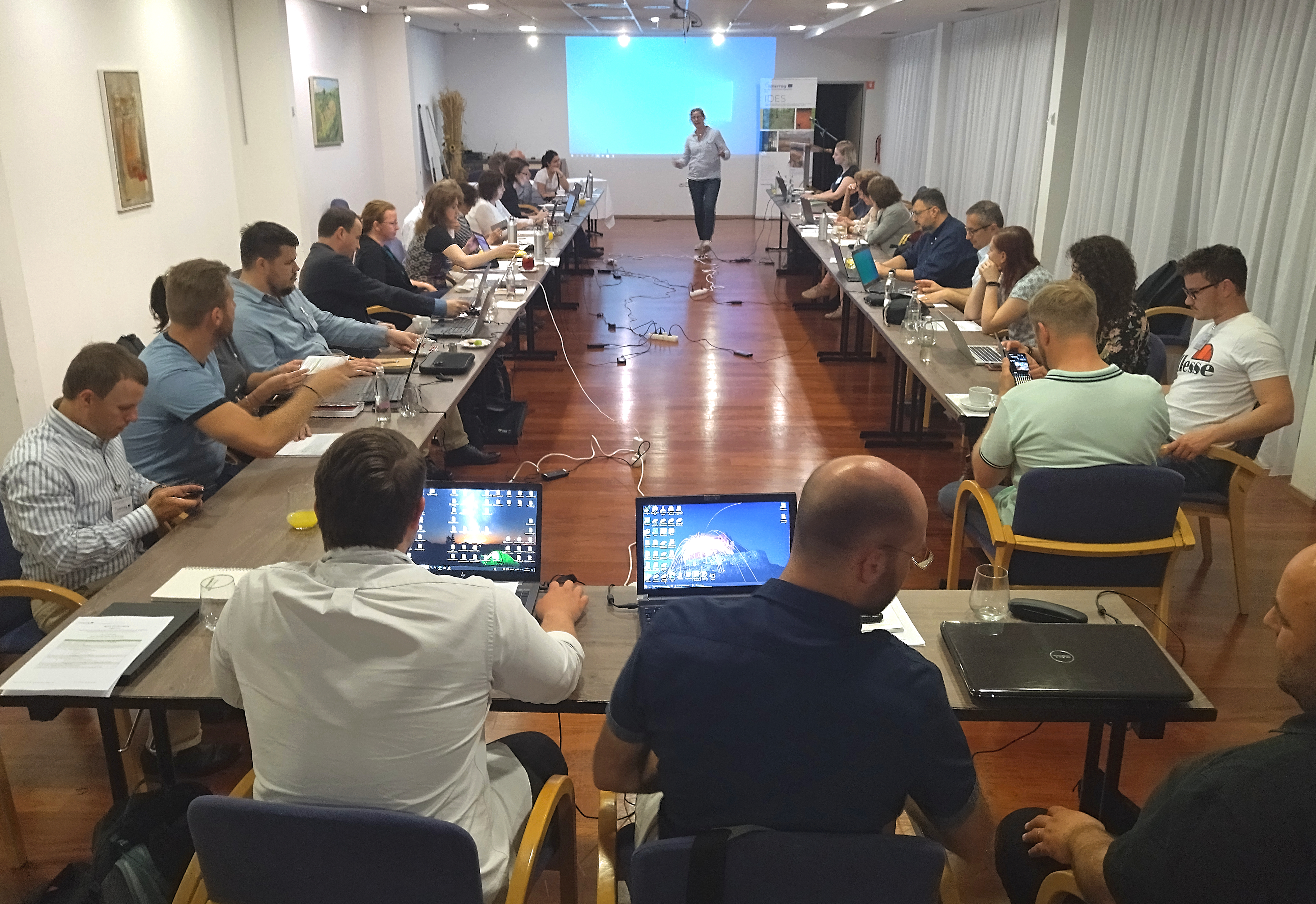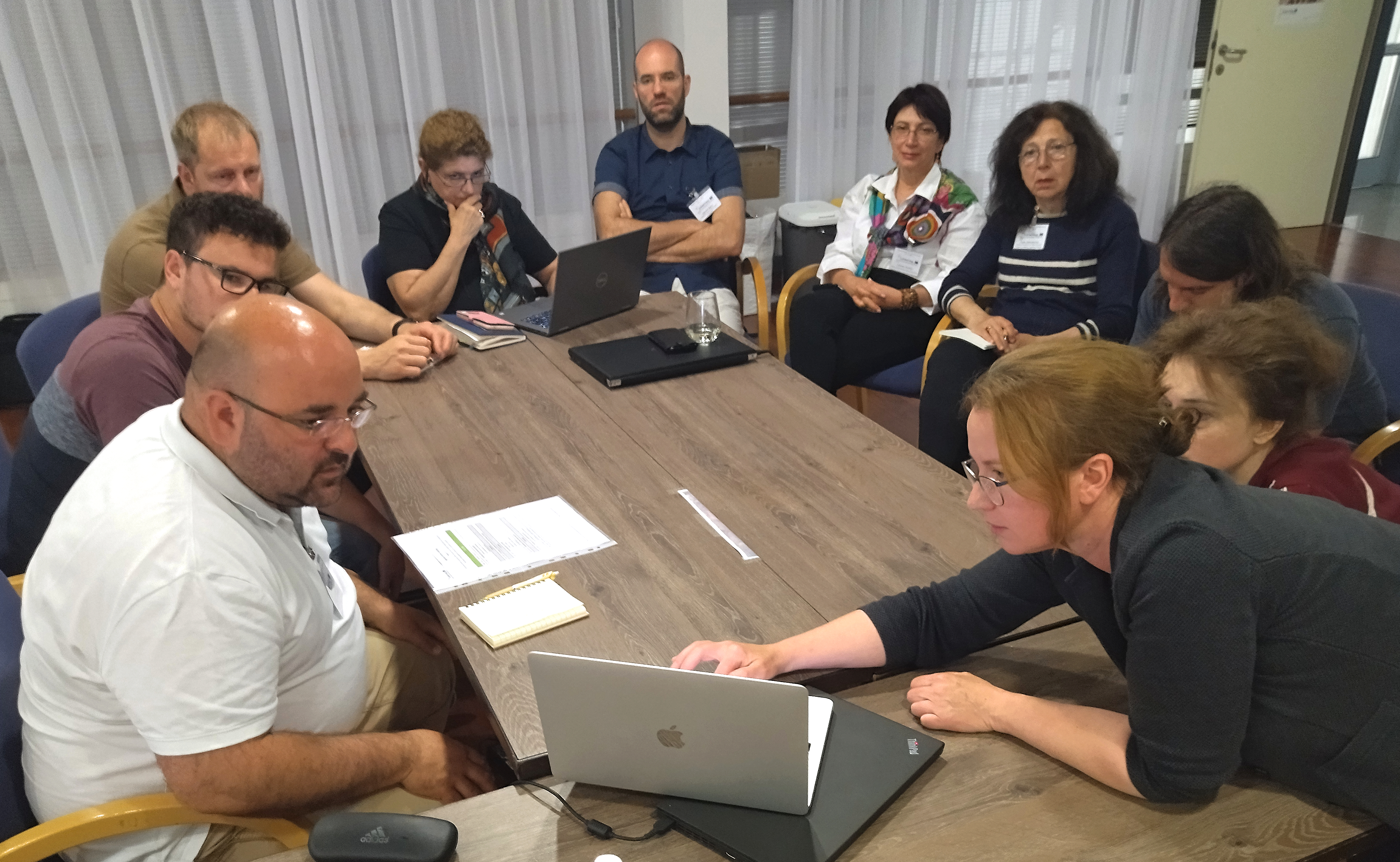IDES - IDES - Project partners meet in Slovenia, in May 2022
03-07-2022
Representatives of all IDES project partners met in Moravske Toplice, Slovenia, for the first time after the lockdown was lifted. 32 participants updated each-other on their latest activities and established the way forward for the finalisation of the project.
On May 10 through 12, 2022, after months of meeting mostly online and in a hybrid form, the representatives of the organisations forming the consortium carrying the IDES project met physically in the Slovenian town of Moravske Toplice, near the banks of the river Mura.
There were 32 people present during the three days of the meeting that consisted in workshops and a field visit.
On the first day, after a welcome message from Dr. Barbara Stammel(CUEI) - the project manager - there were three workshops carried out. The first one was on communicating and promoting the project by trying to integrate information on it onto the public agenda. Social media strategies as well as methods of capitalising on other closed/ongoing projects were the main talking points leading to increasing project visibility.
Also, the idea of a sociological study was introduced, aiming at finding out how people feel about the relationship between rivers and human society and if they think there is a need to change something.
|
|



